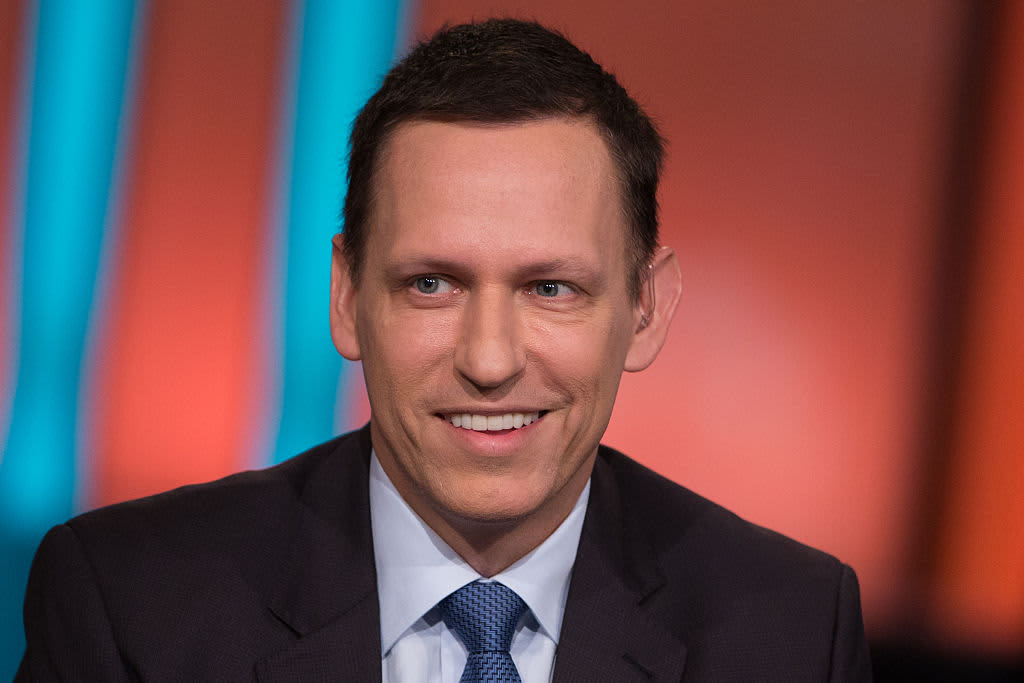
Peter Thiel
Adam Jeffery | CNBC
LONDON — Billionaire tech investor Peter Thiel has backed a Berlin start-up aiming to make psychedelic drugs to treat mental health disorders in a $125 million funding round.
ATAI Life Sciences, which describes itself as a drug development platform, was set up to acquire, incubate and develop psychedelics and other drugs that can be used to treat depression, anxiety, addiction and other mental health conditions. The company — founded in 2018 by entrepreneurs Christian Angermayer, Florian Brand, Lars Wilde and Srinivas Rao — announced the funding on Monday.
“ATAI’s great virtue is to take mental illness as seriously as we should have been taking all illness all along,” Thiel, who co-founded Palantir and PayPal, said in a statement shared with CNBC. “The company’s most valuable asset is its sense of urgency.”
Thiel made a 10 million euro ($12 million) investment in ATAI through his venture firm, Thiel Capital, while the rest of the series C funding round came from Apeiron Investment Group (Angermayer’s family office), Catalio Capital Management, Future Ventures, Galaxy Investment Partners, Falcon Edge Capital, and Pura Vida.
Total investment in the company now stands at over $210 million.
ATAI, which has roughly 35 staff in offices across Berlin, New York and San Diego, is currently partnered with around 10 drug development companies. In exchange for a majority stake in the drugs they’re developing, ATAI helps the scientists to raise money, work with the regulators, and conduct clinical trials.
None of ATAI’s drugs have been formally approved by regulators to date.
There is growing interest in certain psychedelics after recent clinical studies suggested that some could help patients with a number of mental illnesses, either in combination with traditional solutions or in cases where nothing else has worked.
“The current treatments (for mental health issues) which are out there are definitely not sufficient,” company co-founder Angermayer told CNBC via Zoom ahead of the announcement. “I don’t want to say they don’t work as all because some people are helped by them but they’re not sufficient.”
Almost a billion people suffer from mental health problems worldwide, according to the World Health Organization. Of the 322 million people globally that have depression, roughly a third are treatment-resistant, according to fellow company co-founder Brand.
ATAI said it will use the new funding to pay for the clinical development of drugs that ATAI has already backed. This includes ar-ketamine, which is being developed at Perception Neuroscience for treatment-resistant depression, and ibogaine, which is being developed by DemeRx to treat opioid addiction. The funding will also be used to identify new drugs and support their development.
Earlier this year, the U.S. Food and Drug Administration approved Johnson & Johnson’s ketamine-like nasal spray for depression and there are a number of other start-ups trying to get psychedelic drugs to market including MindMed and Beckley Psytech.
Psychedelic trips
Angermayer said that people “meet themselves” when they have a psychedelic trip. “Since we’re born, society imposes on us how we should be, what we should look like, what we should wear/do/say,” he said. “We put a lot of camouflage on our soul, on our character, on our inner self. Psychedelics take away all these things which were imposed on us. That is an extremely important thing because I am very convinced you need to know yourself.”
Angermayer said he is confident that ATAI’s drugs work in principal when it comes to treating mental health problems, but acknowledges there are hurdles to overcome. “Drug development unfortunately is not just science,” he said. “Even if things work, you can still mess it up with the wrong trial design, or there can be political hurdles. But I am confident we are well on track.”
Rao, who is the company’s chief scientific officer, told CNBC via Zoom that ATAI was going through all the necessary regulatory processes to ensure their drugs were fully legal. “We’re not doing plants and we’re not doing extracts,” he said. “We’re doing synthetic or semi-synthetic.”
Rao said the company would begin by focusing on the U.S., adding that it represents around 50% of the world’s pharmaceutical market. “That is the obvious place to start,” he said.
Compass Pathways
ATAI has also invested in Compass Pathways, which has developed a synthetic version of the active ingredient in magic mushrooms, psilocybin.
Compass Pathways, which Thiel has also invested in, listed on the New York’s NASDAQ stock exchange in September and now has a valuation of around $1.3 billion. ATAI’s owns roughly 25% of Compass Pathways.
The plan is to take ATAI public next year at a valuation of between $1 and $2 billion, according to an industry source that asked to remain anonymous due to the nature of the discussions.
In reference to the future of ATAI, Brand added: “I would say we have all avenues open right now and haven’t yet finally decided which one we will take.”




